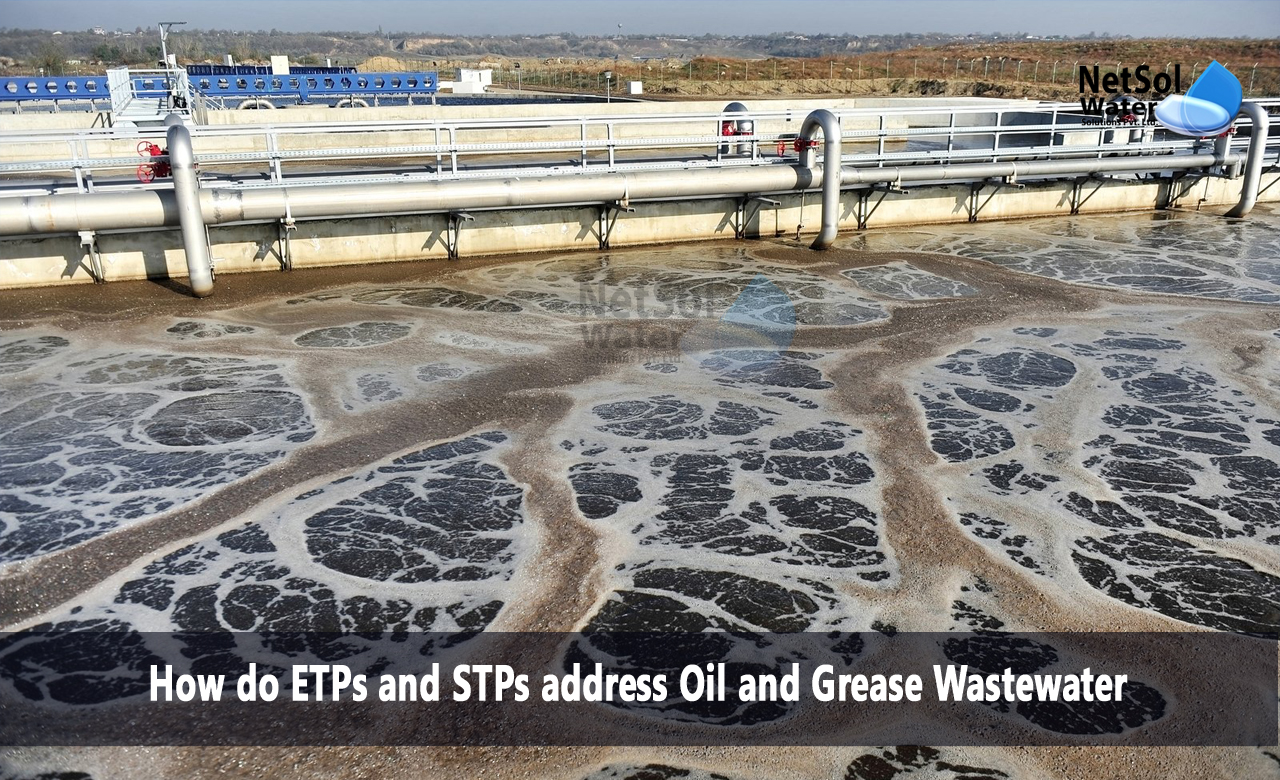How Do ETPs and STPs Address Oil and Grease Wastewater?
Effluent Treatment Plants (ETPs) and Sewage Treatment Plants (STPs) assume a vital part in tending to oil and grease wastewater, which is a typical test in different modern and homegrown settings. Oil and oil, frequently alluded to as Haze (Fats, Oils, and Oil), can cause critical ecological and functional issues while possibly not appropriately made due. In this blog, we'll investigate how ETPs and STPs successfully address oil and oil wastewater.
1. Essential Treatment:
In both ETPs and STPs, essential treatment is the underlying move toward tending to oil and lube. Wastewater commonly goes through actual partition cycles like screening and sedimentation. During essential treatment, bigger oil and oil particles are permitted to isolate from the wastewater. These drifting or settled substances are then eliminated, decreasing the general oil and oil content in the wastewater.
2. Oil Traps and Interceptors:
In business kitchens, eateries, and food handling offices, enormous amounts of fats, oils, and oil are released into the sewage framework. To keep these substances from entering STPs and causing stops up, oil traps and interceptors are introduced. These gadgets catch and hold Mist, taking into consideration the expulsion of oil loaded wastewater independently from other sewage. Standard support and cleaning of these snares are fundamental to forestall blockages.
3. Broken up Air Buoyancy (DAF):
Broken up Air Buoyancy is a broadly involved technique in ETPs for isolating and eliminating fine oil and oil particles from wastewater. DAF frameworks bring air rises into the wastewater, which connect to the oil and oil beads, making them ascend to the surface and structure a rubbish layer. This filth layer is then eliminated, abandoning treated water with decreased oil and oil content.
4. Organic Treatment:
Organic treatment processes in ETPs and STPs are compelling in lessening oil and oil levels. Microorganisms present in these treatment frameworks can biodegrade natural substances, including fats and oils. In oxygen consuming treatment, microorganisms use the oil and oil, separating them into less difficult, less hurtful substances. This cycle is particularly important in STPs that get homegrown sewage with fats from kitchens and families.
5. Coagulation and Flocculation:
Coagulation and flocculation are substance processes that include the expansion of coagulants and flocculants to the wastewater. Coagulants, for example, aluminum or iron salts, assist with restricting oil and oil particles together, framing bigger clusters. Flocculants then help in the agglomeration of these bunches, making it simpler for them to settle or be isolated from the water.
6. Film Bioreactors (MBRs):
Film bioreactors join organic treatment with layer filtration innovation. MBRs use microfiltration or ultrafiltration films to isolate treated water from suspended solids, including oil and oil. The layers successfully eliminate fine particles, bringing about excellent gushing with low oil and oil content.
7. Compound Treatment:
Now and again, synthetic treatment might be important to address exceptionally focused or testing oil and oil wastewater. Particular synthetic substances, like oil demulsifiers or emulsion breakers, can assist with undermining oil-in-water emulsions, permitting the oil and oil to isolate from the water. These synthetics are utilized prudently to stay away from over-treatment, which could prompt optional ecological issues.
8. Checking and Guideline:
Successful oil and oil wastewater the board in ETPs and STPs incorporates ceaseless checking and guideline of emanating quality. Ordinary testing and investigation of wastewater guarantee that oil and oil levels are inside reasonable cutoff points and fulfill natural guidelines. This observing considers ideal changes in treatment processes when deviations happen.
9. Post-Treatment:
After essential and auxiliary treatment, the gushing might in any case containfollow measures of oil and oil. Post-treatment methods, like filtration, adsorption, or extra compound treatment, can be utilized to additionally lessen oil and oil content prior to releasing treated water into the climate.
10. Gifted Administrators:
Having skilled administrators who comprehend the complexities of oil and oil wastewater treatment is essential. They can screen the cycle, investigate issues, and make fundamental acclimations to upgrade treatment effectiveness. Legitimate preparation and adherence to functional methodology are fundamental to keeping up with viable ETPs and STPs.
Conclusion
ETPs and STPs are fundamental for tending to oil and lube wastewater, which is a typical test in different modern and homegrown settings. These treatment plants utilize a blend of physical, natural, and compound strategies to eliminate, discrete, and biodegrade fats, oils, and oil from wastewater. Normal upkeep, gifted administrators, and adherence to ecological guidelines are fundamental for guaranteeing the proficient and viable treatment of oil and oil wastewater, safeguarding the climate and general wellbeing.
Netsol Water is Greater Noida-based leading water & wastewater treatment plant manufacturer. We are industry's most demanding company based on client review and work quality. We are known as best commercial RO plant manufacturers, industrial RO plant manufacturer, sewage treatment plant manufacturer, Water Softener Plant Manufacturers and effluent treatment plant manufacturers. Apart from this 24x7 customer support is our USP. Call on +91-9650608473, or write us at enquiry@netsolwater.com for any support, inquiry or product-purchase related query.



